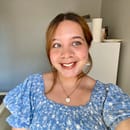What makes a “classic” can be a complicated and contested subject. For a book to be considered a “classic,” it must be a representative of its genre or a novel that makes a great contribution to the field of literature. According to the publishing giant, Penguin Random House, they are books that “broke boundaries and challenged conceptions.”
In and out of literary circles have been discussions on what constitutes a classic. Many noticing that the authors of classics tend to be old white men and often consist of outdated racist, sexist and antisemitic ideas that make the book hard to read. Readers often find themselves feeling disconnected from the narrator over a divide of ideas, time and culture that words cannot bridge. Among the controversy, there can be curiosity, even if it is just so that you can join the conversation. If you’re looking for a place to form your own ideas of classical literature, start with these. Included are bookstore recommendations that house each novel.
Emma by Jane austen
Lost City Books is an independent bookstore, located in Adams Morgan. Home to classic, rare, queer and even weird books that has some super cute merch available for purchase. They have Emma for only $9 dollars so treat yourself to a tote bag, too.
While Jane Austen’s most recognizable work may be her beloved Pride and Prejudice, it may not be the easiest of her work to begin with. That privilege belongs to what I consider to be her most charming novel, Emma. You may already be familiar with the story if you’ve seen the 1995 film classic “Clueless.” Emma Woodhouse may just be Austen’s most relatable heroine, despite her privileged position in life as she’s so heavily flawed. Born into a comfortable home with a doting, if not overbearing father, Emma follows the story of a girl as she takes her friend, Harriet Smith, under her tutelage and pledges to help her become a proper lady and find love. All the while, she is lectured on her naivety on matters of love and class by her neighbor, Mr. Knightly. For those looking for a more light hearted (and romantic) beginning, Emma is a great place to start. The language of the regency era does require some adjustment but the story is easy to follow, amusing, and endearing, containing probably my favorite confession of love ever. Plus, if you like the book, you can watch and compare it to its many adaptions, including the most recent adaption, the 2020 film which starred the A24 darling, Anya Taylor-Joy.
To Kill a mockingbird by Harper lee
East City Books describes itself to be an “independent, community focused” bookstore. The indie store is located in Capitol Hill and values inclusion and representation, emphasizing allyship.
Harper Lee’s Pulitzer Prize winning novel was written in 1960, intertwining girlhood with a community’s crisis of justice in the deep, segregated South. The story follows Jean Louise “Scout” Finch as she is raised alongside her brother in Maycomb, Alabama by their lawyer father, Atticus. The story is said to be both a bildungsroman and a Southern Gothic novel. Scout and her brother’s childhood is chronicled in the story, rocked by their growing understanding of racial prejudice and how it affects those in their lives. This primarily includes their father who raises his children to be kind and accepting of everyone, even their strange neighbor, Boo Radley. Soon as their town is shaken by sexual assault allegations, its tensions come to a rise as Atticus defends his client, an African American man, against a town with long held racial prejudice. Warning: Due to its setting in the deep segregated south of the 1930s, there are racial slurs used against characters, with mentions of racial hate crimes and a plot point of sexual assault.
Lee’s work is considered a classic for its themes on childhood, race relations and justice. The writing is captivating as she balances the naivety and delicate ignorance of a child with her and the reader’s broader understanding of racism in the American South. Scout’s narration is simple yet touching and impactful due to her age which makes the book easy to read (in the literal sense) but aids in leaving a lasting mark.
Moby Dick by Herman Melville
Bridge Street Books is probably a name most GWU students recognize. Located on Pennsylvania Ave, right before M St begins, the independent bookstore has been a staple of the community for 40 years, outlasting its modern neighbor, the Amazon Bookstore. If you’ve only ever gone in to browse, go in with a purpose next time and hunt down this catch.
Heralded as “The Great American Novel,” Herman Melville’s nautical epic follows Ishmael as he is caught in Captain Ahab’s desperate quest for vengeance against the titular, Moby Dick, a giant white sperm whale. Beginning with one of my favorite opening lines of literature ever, Moby Dick is a starter choice for some more ambitious readers, ones looking to dive in headfirst. Thicker than the Bible and as dense as fog over a harbor, Moby Dick is a book you will find yourself rereading throughout life, picking up on different metaphors and allegories. Your understandings of its symbols, characters and morals may change as you do. Each read garners more debate about the cruelty of man and of nature’s apathy. It makes you question how meaningful revenge is, and what it can take from you before you even achieve it. The Homeric epic is almost biblical in its language, the whale being described as a “great beast” with the crewmen being constant victims to the whims of nature, despite Ahab’s quest to conquer it.
In the time of the butterflies by julia alvarez
Solid State Books is a Black owned independent bookstore located in the H Street Corridor. Its been serving the DC community since 2017, providing good reads, coffee and even beer/wine for the 21+ reader.
Drawing on the universal struggles and experiences of girlhood, Julia Alvarez adds a cultural aspect to these milestones with her historical fiction novel. Set in the Dominican Republic under the Trujillo dictatorship, particularly in the 1960s, the book follows the Mirabel Sisters: Minerva, Dedé, María Teresa, and Patria. The sisters are based on real women of the same names, who vehemently opposed the dictatorship resulting in their untimely deaths. Alvarez chronicles the lives of these women and their rise in the resistance through parallel third person narrative, framing their voices through diary entries. The sisters, now praised as both martyrs and saints in the Dominican Republic, are shown to be heartbreakingly real. They struggle with marriage, parents, children, and the difficulties of both fear and courage.
Among complaints that classics primarily consist of books written for and by “old white men,” go to Solid State Books and seek out more diverse reads while supporting a local business. While classics can be alienating in their lack of diversity, the conversation is growing to include those representing more diverse cultural backgrounds. Girlhood has many appearances; some similar to Scout Finch’s and Emma Woodhouse’s, some similar to the one in Julia Alvarez’s works. If you find yourself liking In the Time of the Butterflies, seek out her other book, Before We Were Free, another bildungsroman, following Anita de la Torre, a 12 year old girl whose family is also affected by the Trujillo rule.
Frankenstein by Mary Shelley
Loyalty Bookstores is a growing chain with locations in DC and Silver Springs, MD. They have Frankenstein available for purchase for just $9.30. So while you’re there, find some diverse reads suggested by the staff. They are led by Hannah Oliver Depp, an African-American queer bookseller, working to diversify the book industry.
Sometimes regarded as the first science fiction novel, Mary Shelley’s 1818 legendary creation had embedded itself into modern pop culture. There’s few Americans who wouldn’t recognize the name Frankenstein, even if they’ve never read the novel itself. If they don’t recognize it from the written work, they would definitely recognize its media adaptions where the creature has been ironically portrayed as an almost brain dead creature of the night. Frankenstein’s monster communicates in mumbled groans and moans, with its hands stuck out like a zombie and bolts jutting out of its head, an appearance replicated in decades of Halloween costumes. This depiction of the creature couldn’t be any further from Shelley’s, her’s being nightmarish in a vastly different way. Most importantly, Frankenstein is not the name of the story’s antagonist, though some argue that Frankenstein is still the monster of Shelley’s story even if he is human. Its important to know heading into the story that Frankenstein is not the creature’s name, he is the scientist. In her story, Shelley’s monster is coherent, philosophical and oh so lonely. Her writing calls attention to man’s desire to play God, its consequences and the nature and blame of existence and why it’s so isolating. Once you’ve read the book, contemplate morality and existence and then enjoy the almost comical adaptations of the monster.
Its not necessary to purchase the books from their assigned locations. If the suggested store is sold out of your desired book, check out the other suggestions for local stores. Not listed above but still suggested for patronage are Capitol Hill Books, Second Story Books, and Little District Books. As students, most of us have limited funds and books aren’t a luxury all of us can afford to buy. If you are curious about a book but don’t want the commitment of a purchase, borrow from a local DC library. Closest to GWU’s campus is the West End Library but with a free DC Public Library Card, you can call and request books from any branch. This is all to say that before you immediately go for big corporate sellers such as Amazon, support your small local bookstores when you can. They do their best to give back to you as well. Check out their websites and attend some of the cool events they host for the community, from book clubs to readings, to even speed dating. By buying local, you don’t just pick up a package from the mail center; you get to find people just as curious as you, and maybe even get the chance to discuss the book you pick.


